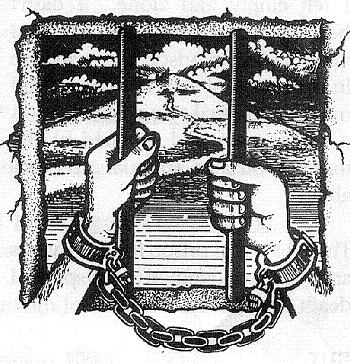 Editor’s Note: The following call for action was posted on the site of Human Rights Watch on August 28, 2009.
Editor’s Note: The following call for action was posted on the site of Human Rights Watch on August 28, 2009.
By Human Rights Watch
(New York) -The new head of Iran’s judiciary, Ayatollah Sadegh Ardishir Larijani, should immediately open an impartial investigation to determine the role of high-ranking officials in attacks on largely peaceful demonstrators and torture of detainees, Human Rights Watch said today.
In a letter to Larijani, Human Rights Watch urged him to investigate those responsible for attacks that wounded hundreds of people and caused the deaths of dozens during the post-election protests, as well as a number of outstanding cases predating the elections.
“This will be the most important test for Iran’s judiciary under Ayatollah Larijani’s leadership – does it have the political will to go after those responsible for violence against peaceful protesters and the torture of detainees?” said Joe Stork, deputy Middle East director at Human Rights Watch.
Supreme Leader Ayatollah Ali Khamenei appointed Larijani to be the new chief of the judiciary on August 14, 2009. Larijani was previously a member of the country’s Guardian Council.
Human Rights Watch also called on Larijani to investigate credible reports of torture in Kahrizak and Evin prisons, and to close secret places of detention.
Official and quasi-official bodies, including the Ministry of Intelligence, the police, and the Revolutionary Guards Corps, run secret and unauthorized sites where they detain and interrogate persons arrested on politically motivated charges, Human Rights Watch said. In view of the judiciary’s legal authority over these detention centers, Larijani should investigate and take immediate steps to end these practices.
Hundreds of peaceful protesters, including many leading reform advocates, remain in detention, some more than two months after they were arrested. Many have not had access to lawyers and have been kept in solitary confinement. The government has staged a mass show trial of more than 100 of them, at which some prominent reformists have read confessions that bear every sign of having been coerced.
“The judiciary should live up to its obligation to release them or charge them with a recognizable criminal offense,” Stork said. “Those charged should be promptly tried before a court whose proceedings meet international fair trial standards.”
In its letter, Human Rights Watch called on Larijani to:
- Establish an independent and impartial fact-finding committee to identify those who ordered the crackdown on post-election protesters, specifically including in the inquiry Hussein Taeb, head of Basij Resistance Forces; General Esmaeel Ahamdi Moghaddam, the chief of police; Hojatoleslam Gholam-Hussein Ramazani, head of the Islamic Revolutionary Guards Corps intelligence division; and Saeed Mortazavi, Tehran’s general prosecutor;
- Investigate allegations of torture and ill-treatment of detainees in Kahrizak and Evin prisons;
- Initiate new investigations into the cases of Zahra Kazemi and Zahra Baniyaghoub, who died of injuries sustained in detention in 2003 and 2007, respectively;
- Free the blogger Hossein Derakhshan, the civil society advocate Silva Harotonian, and the HIV/AIDS doctors Arash and Kamyar Alaei; and
- Free or promptly bring before a judge seven Baha’i community leaders detained since May 2008 to consider the legality and necessity of their detention, and give them the opportunity to answer the charges against them before a court whose proceedings meet international fair trial standards.
In the government structure of the Islamic Republic, the judiciary is an independent branch, along with the executive and legislative branches. The head of the judiciary, appointed by the supreme leader for a term of five years, is responsible for the administration of justice and courts, and supervision of prisons and places of detention. The head o the judiciary is also responsible for initiating legislation relating to the administration of justice, and is constitutionally mandated to initiate investigations into “grievances, violations of rights, and complaints.”
[Posted at Human Rights Watch]
Leave a Reply